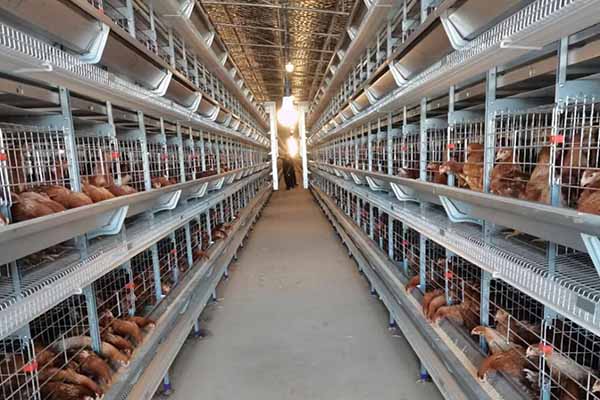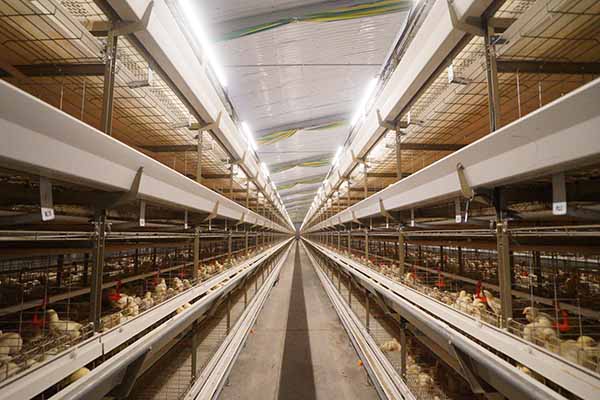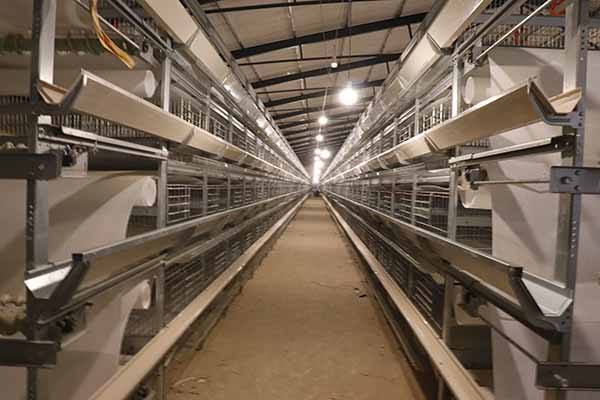Poultry Cage Systems in Cameroon for Commercial Farms: A Comprehensive Guide
Time : 2025-06-24
Introduction
In the dynamic agricultural landscape of Cameroon, the poultry industry has experienced significant growth, with commercial farms playing a pivotal role in supplying the local and international markets. The implementation of efficient poultry cage systems is crucial for the success of these farms. This article delves into the various poultry cage systems available in Cameroon, their benefits, and how they contribute to the overall efficiency and profitability of commercial poultry operations.
Understanding Poultry Cage Systems
Poultry cage systems are designed to house chickens, ducks, turkeys, or other poultry species in a controlled environment. These systems are engineered to optimize space, promote animal welfare, and enhance productivity. There are several types of poultry cage systems, each with its unique features and advantages.
Types of Poultry Cage Systems in Cameroon
1. Deep Litter System
The deep litter system is one of the most common types of poultry cage systems in Cameroon. In this system, chickens are kept in floor pens with a thick layer of bedding material such as wood shavings or straw. This system is favored for its simplicity, cost-effectiveness, and the ability to accommodate a large number of birds.
Advantages:
- Reduced risk of disease transmission due to the physical separation of birds.
- Easy to manage and maintain.
- Cost-effective, as it requires minimal investment in equipment.
2. Battery Cages
Battery cages are a type of poultry housing system where birds are kept in individual cages that are stacked on top of each other. These cages are designed to provide each bird with a small amount of space, which can help prevent the spread of disease and facilitate easy management.
Advantages:
- High bird density, which can maximize production.
- Reduced labor costs due to simplified management.
- Easy to clean and disinfect, which helps in preventing disease outbreaks.
3. Free-Range Systems
Free-range systems allow poultry to roam outside of their enclosures, which is believed to enhance animal welfare and produce healthier birds. In Cameroon, free-range systems are becoming increasingly popular among commercial farms, especially for egg-laying chickens.
Advantages:
- Improved bird welfare and egg quality.
- Reduced antibiotic usage, as birds are less susceptible to diseases.
- Increased consumer demand for free-range eggs.
Benefits of Poultry Cage Systems
1. Increased Productivity
Efficient poultry cage systems help in maximizing the production output of commercial farms. By providing an optimal environment for birds, these systems ensure that they are healthy, well-fed, and stress-free, leading to higher egg production and meat yield.
2. Improved Animal Welfare
Modern poultry cage systems are designed with animal welfare in mind. They provide adequate space for birds to move around, reducing the risk of injuries and other welfare issues. Additionally, systems like the free-range allow birds to exhibit natural behaviors, enhancing their overall well-being.
3. Enhanced Biosecurity

By using poultry cage systems, commercial farms can implement strict biosecurity measures, reducing the risk of disease outbreaks. Physical barriers, proper ventilation, and regular cleaning protocols are some of the key features that contribute to biosecurity.
4. Cost-Effectiveness
While initial investment in poultry cage systems can be significant, the long-term benefits often outweigh the costs. By reducing disease incidence, improving productivity, and minimizing labor requirements, these systems can lead to increased profitability for commercial farms.

Challenges and Solutions in Implementing Poultry Cage Systems
1. Initial Investment Costs
The high initial investment costs for poultry cage systems can be a barrier for small-scale farmers. However, there are financing options available, such as government grants and loans, which can help offset these costs.
2. Technical Expertise
<p Proper implementation and management of poultr y cage systems require technical expertise. Farmers can benefit from consulting with agricultural extension services or hiring professionals who specialize in poultry farming to ensure the success of their operations.
y cage systems require technical expertise. Farmers can benefit from consulting with agricultural extension services or hiring professionals who specialize in poultry farming to ensure the success of their operations.
3. Environmental Impact
Poultry cage systems can have an environmental impact, particularly if not managed properly. It is essential for farmers to implement sustainable practices, such as waste recycling and energy-efficient systems, to minimize their ecological footprint.
Conclusion
Poultry cage systems are an essential component of modern commercial poultry farming in Cameroon. By choosing the right system and implementing best practices, farmers can enhance productivity, improve animal welfare, and contribute to the sustainable development of the poultry industry. As the demand for poultry products continues to grow, the adoption of efficient cage systems will be crucial for the success of commercial farms in Cameroon.











